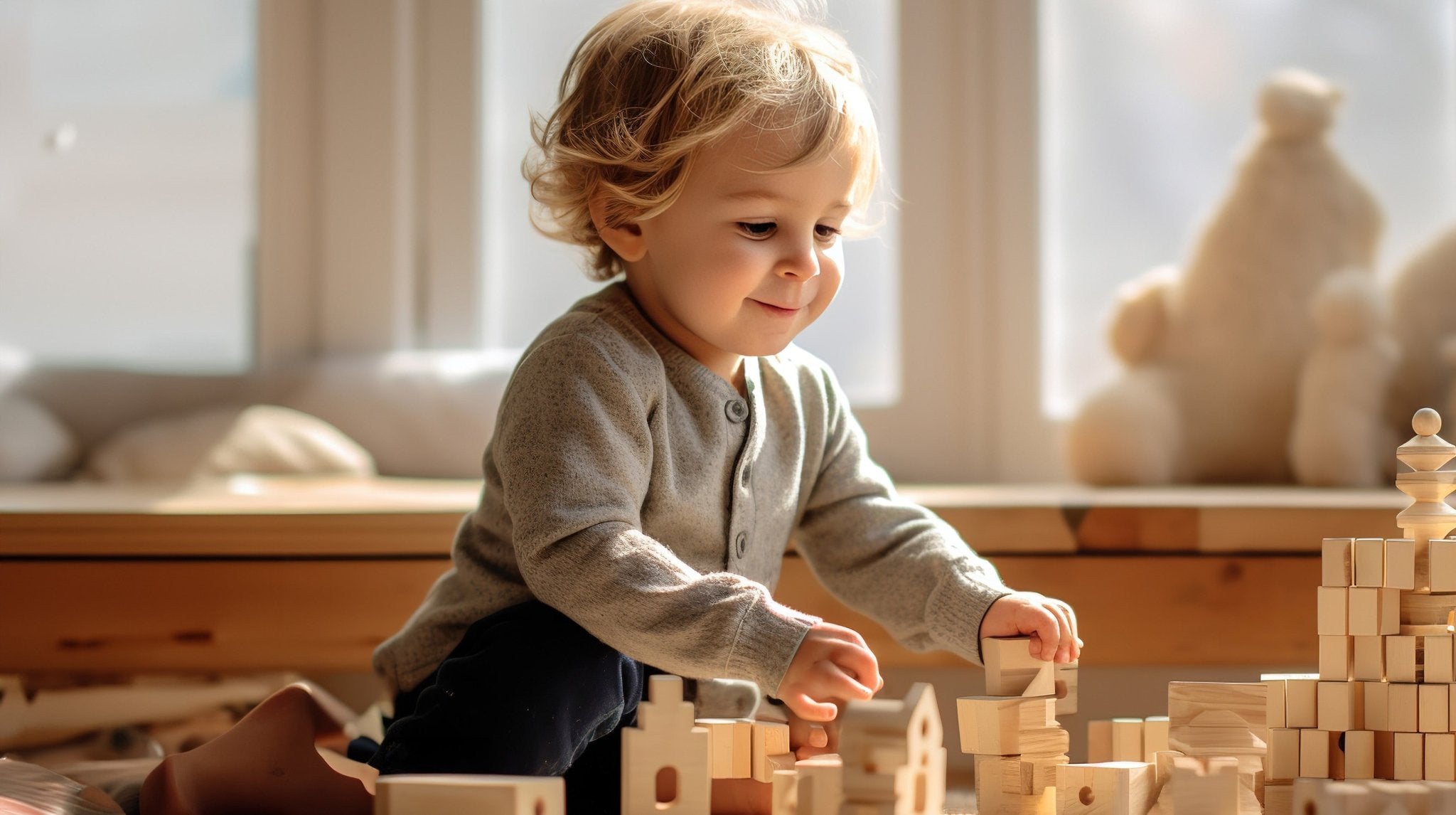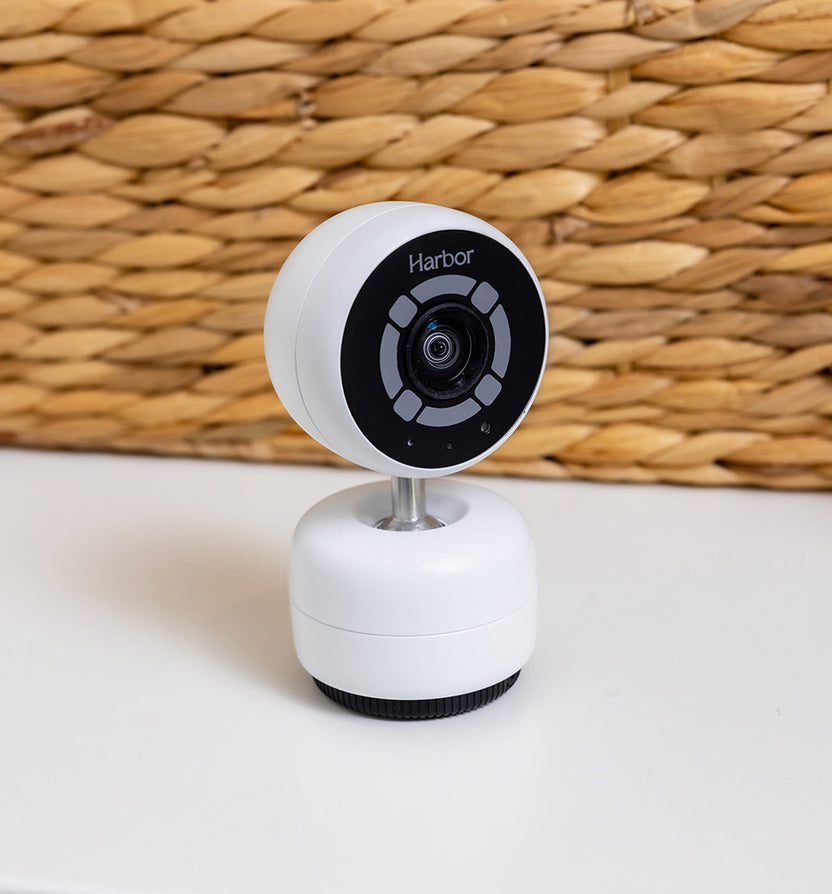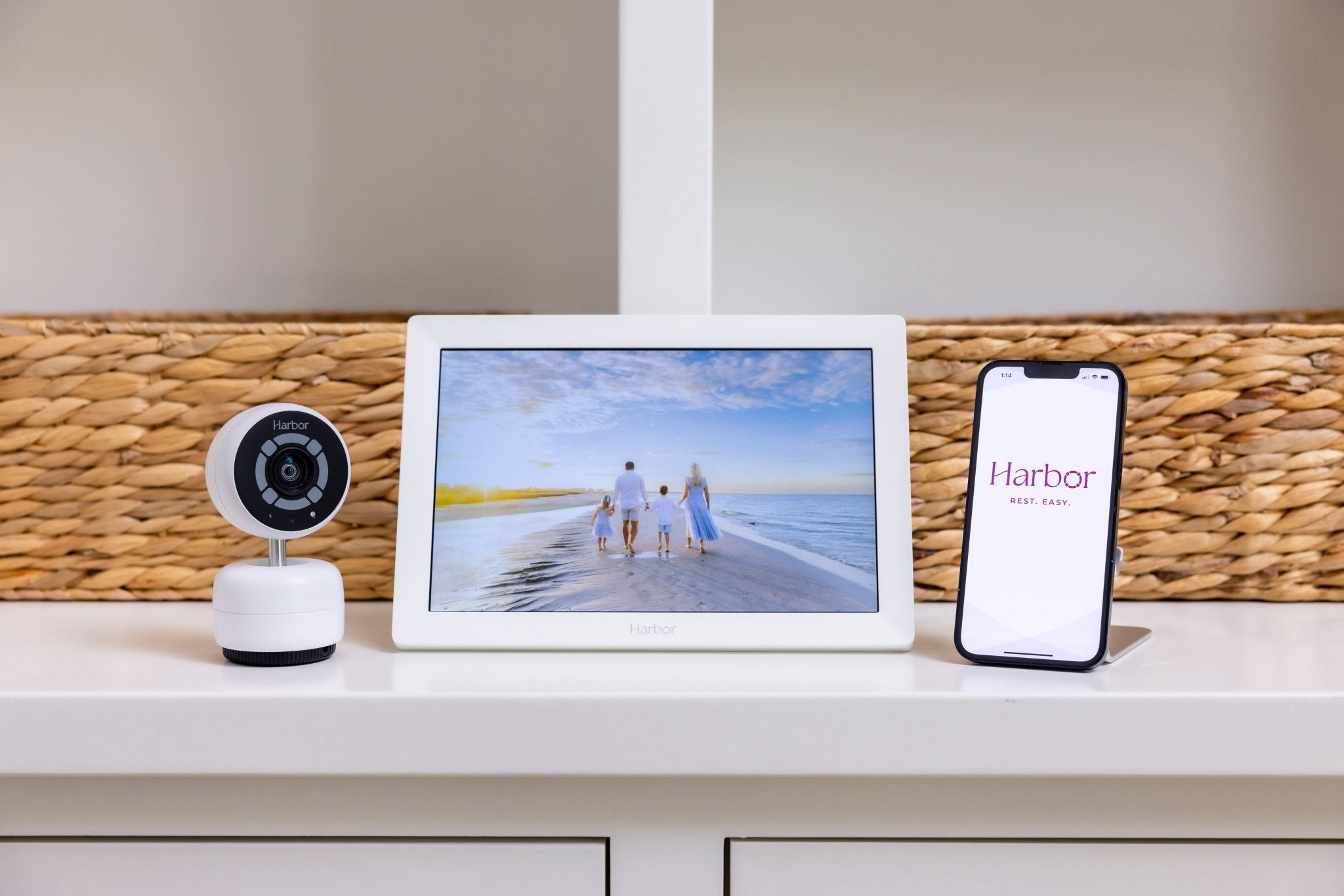
As adults, we typically think of play as a means of having fun. For children, it’s also critical to their development. As your little one grows and changes, so will their play needs and abilities, but it will remain a fundamental part of their overall learning and life journey for many years.
Harbor’s infant care experts compiled their favorite playtime suggestions for infants 0–6 months, infants 6–12 months, toddlers, and preschoolers to foster their physical, cognitive, and social-emotional development.
From the first day you bring your child home, we agree with the experts that you can and should begin reading and talking to your child as much as possible. Making reading a nighttime ritual is a nice way to establish a routine that is beneficial in many ways from the earliest of days.
Harbor Tip: Your presence and interaction will always be their favorite toy. Play alongside them and always provide active supervision to ensure their safety.

During the first six months of a baby’s life, playtime allows them to engage in sensory exploration and learn through interactions with caregivers. While they may not be able to “do” much, there are still ways to enrich their playtime.
Engage with them
Respond to baby’s babbling by interpreting their effort to communicate and labeling objects and emotions. This not only strengthens your bond but also fosters their language development.
Build strength with tummy time
The American Academy of Pediatrics suggests incorporating tummy time, which promotes muscle development, into baby’s routine from birth . Start with 3–5 minutes of supervised tummy time at least three times a day. By the time baby reaches three months, you’ll want to have worked up to one hour of supervised tummy time.
Offer sensory toys
Toys with a range of textures, colors, and sounds captivate your little one’s senses. Board books, especially those with interesting textures, can capture their interest and offer a means of engagement. Some of our favorites are available from Lovevery.
Consider a baby gym
Baby gyms, which are small structures with dangling toys, promote reaching, grasping, and kicking actions, promoting physical development and coordination.

As your little one gets older, they’ll be able to engage more directly with you. They’ll recognize you as their caregiver, engage in focused play with toys, babble, and may even be crawling, sitting, and/or walking. Engaging in playtime will continue to nurture their development and curiosity.
Sing songs
Interactive songs with movement aids, like “The Itsy Bitsy Spider,” can nurture gross motor skills.
Play with puppets
Toys like puppets (even sock puppets!) can be used to play peek-a-boo, sing songs, and provide supportive coaching to help your little one learn and explore new experiences.
Consider a tissue box toy
The Montessori tissue box toy promotes object permanence and fine motor skills by encouraging baby to pull out and push back in pieces of fabric. You can make your own by filling an empty tissue box with fabric scraps cut to the size of a baby wipe. Be sure to provide close supervision during this activity, as their readiness for it will overlap with the development of mouthing!

Toddlers are active explorers who are learning to assert their independence while mastering new skills. Playtime supports their physical, cognitive, and emotional development, as well as their curiosity and sense of adventure.
Outdoor playtime
Take advantage of outdoor spaces for running, climbing, and exploring nature. This can look like going to a playground or playing together in the park. Simple activities like kicking a ball back and forth encourage turn-taking, gross motor skills, and rule-following.
Settle down with a puzzle
Puzzles with large, chunky pieces are a toddler favorite and promote fine motor skills. You can show them how the puzzle works by taking turns and naming the shapes or pieces. Toys that force children to put pieces together, including one object being placed inside another object based on shape, can be endlessly entertaining and educational!
Play pretend
Provide dress-up clothing, dolls, and age-appropriate playsets, like doctor bags or kitchen tools, to encourage your toddler to use their imagination and explore different roles and scenarios. Pretend play fosters creativity and social skill development. Cardboard boxes make great rocketships, airplanes, or boats. Cut up some cardboard pieces, grab some painters tape, and let them (try to) build away!
Make a masterpiece
Sheets of paper, thick crayons, waterproof markers, and washable paints are fun ways to allow your little one to express themselves while also nurturing their fine motor skills and creativity.
Build with blocks
Wooden bricks and Duplo Legos can boost your toddler’s fine motor skills and spatial awareness, as well as engage their problem-solving abilities and creativity.

Preschoolers are curious learners who thrive on hands-on experiences and social interaction. Playtime should foster their creativity and curiosity.
Arts and crafts
Expanding your preschooler’s art supply set with crayons, paints, and clay allows them to express themselves and unleash their creativity. Making art fosters fine motor skills and stimulates their imagination, cognitive development, and self-expression.
Play puzzles and games
Puzzles, board games, and memory games, especially when played with a group, can promote problem-solving and the development of collaborative social skills.
Embrace your little shadow
Preschoolers typically want to do whatever you’re doing. Invite them to sort laundry with you, or look for child-safe tools that allow them to participate in activities like gardening or baking. With the right tools, they’ll be able to safely mimic your actions, develop new interests, and explore the world around them.
Continue to play pretend
Take imaginative play to the next level by encouraging role-play with costumes, props, and themed playsets. Encouraging your preschooler to use their imagination can spark creativity and nurture empathy.
Prep for school
The most effective way to learn is to disguise it as play. Help your preschooler learn their ABCs by sculpting letters from kinetic sand or tracing letters from a thin layer of whipped cream on a baking sheet.
Let’s review
At every age and developmental stage, play supports physical, cognitive, and emotional well-being. Providing age-appropriate play opportunities nurtures your little one’s growth and learning, allows you to see new facets of their personality, and is a valuable bonding opportunity.




